Relatively still unknown in Nollywood, Tunray Femi’s work in For Maria Ebun Pataki, an effort that has toured festivals globally, and currently receiving rave reviews from viewers and critics alike, has certainly put her name out there, for a script she penned with director Damilola Orimogunje.
“Screenwriter and retired poet”, her Twitter bio says. Femi has worked in the TV sphere on released projects— a Ghanaian series, Eden, as well as another in post-production, a Nigerian series set for 2022, The Anomalous. But in this latest Netflix-licensed co-writing with Orimogunje, how much of the heart-wrenching story did she have in her already? How far into writing did they realise what they had on their hands? And which other upcoming works does she have in development? All of these questions and more are answered in this second issue of our newest interview series.
Related:
- How many drafts did the For Maria script go through and what was your reaction when you’d the final one/when did you realise that you’d the final one on your hands?
The director reached out to me and said he wanted to do a story on postpartum depression. I thought it was a beautiful idea. He had seen a thread on Twitter which he shared with me, which I found insightful. We had a sit-down and a back-and-forth shuttle of ideas. I wrote a couple of drafts of the screenplay and we agreed we had something solid. He made modifications to suit certain changes and logistical developments. For instance, the movie was originally supposed to be in English and Igbo language, not Yoruba. So adjustments had to be made here and there.
2. As a story that’s not bound to time, how far did you see this story going and do you still see it going?
To be honest, I wasn’t expecting that the story would go this far. This is a story about postpartum anxiety and depression; very unorthodox per Nollywood’s standard, so we knew exactly what we were walking into. It’s why the rave around it is rather surprising to me. The average Nigerian audience wants to watch something that’s on-the-nose entertaining, if you know what I mean? So I am stunned at the warmth and positivity that For Maria has enjoyed so far. And I am curious and excited to see how far it’ll go.
3. How much research went into it and how much of the subject matter did you’ve in you already?
Prior to writing the script, I had some superficial knowledge about postpartum anxiety and depression. I didn’t quite grasp the extent of the physical and psychological torture that some women endure, until I started doing my research. It was such an eye-opener! I was reading about how women would lose their hair, how their fingernails would start to break off, how their gums would start to bleed, how they would suffer tinnitus, how some mothers found it impossible to bond with their babies, and how this would invariably have some sort of negative impact on their psyche. It was baffling.
4. Talking about scenes. What’s your favourite scene? What’s a scene that proved the most difficult to crack? And a scene in the movie that struck you so much that made you sure you had a gem on your hands?
My favourite scene in the movie is the scene where Derin’s mother-in-law (Tina Mba) walks into the room and starts sprinkling Holy water all over the place, and on Derin. I grew up in a Cherubim & Seraphim Church and sprinkling of Holy Water is very much a sacred part of our doctrine and tradition; so I figured it’s what the average religious mother-in-law would do in that situation. As far as she’s concerned, Derin’s problem is spiritual. You can’t tell her otherwise.
Another scene that is an absolute favourite of mine is the scene where Derin is at the checkout counter in a supermarket. I was literally cackling while I was writing that scene. If you know me, you know I love humor and silliness. I always throw in a healthy dose of comic relief irrespective of the seriousness of a subject matter. So I love that scene, just because it made me laugh.
The scene in the movie that struck me the most is the one where Derin finally finds the words to express her pain to her husband. Prior to that, she hadn’t been able to verbalize her struggle. Writing that scene, I heaved a sigh of relief on her behalf. I felt some weight being lifted off of her shoulders. She finally found the words to express how she was feeling, and she didn’t mince those words. I love the rawness of it.
The toughest scene to crack was the last scene in the movie. The director and I were always on the same page as regards how we thought the story should end, but we had varying ideas on how the scene should be executed exactly. We talked it out and I think it was perfect.
Related:
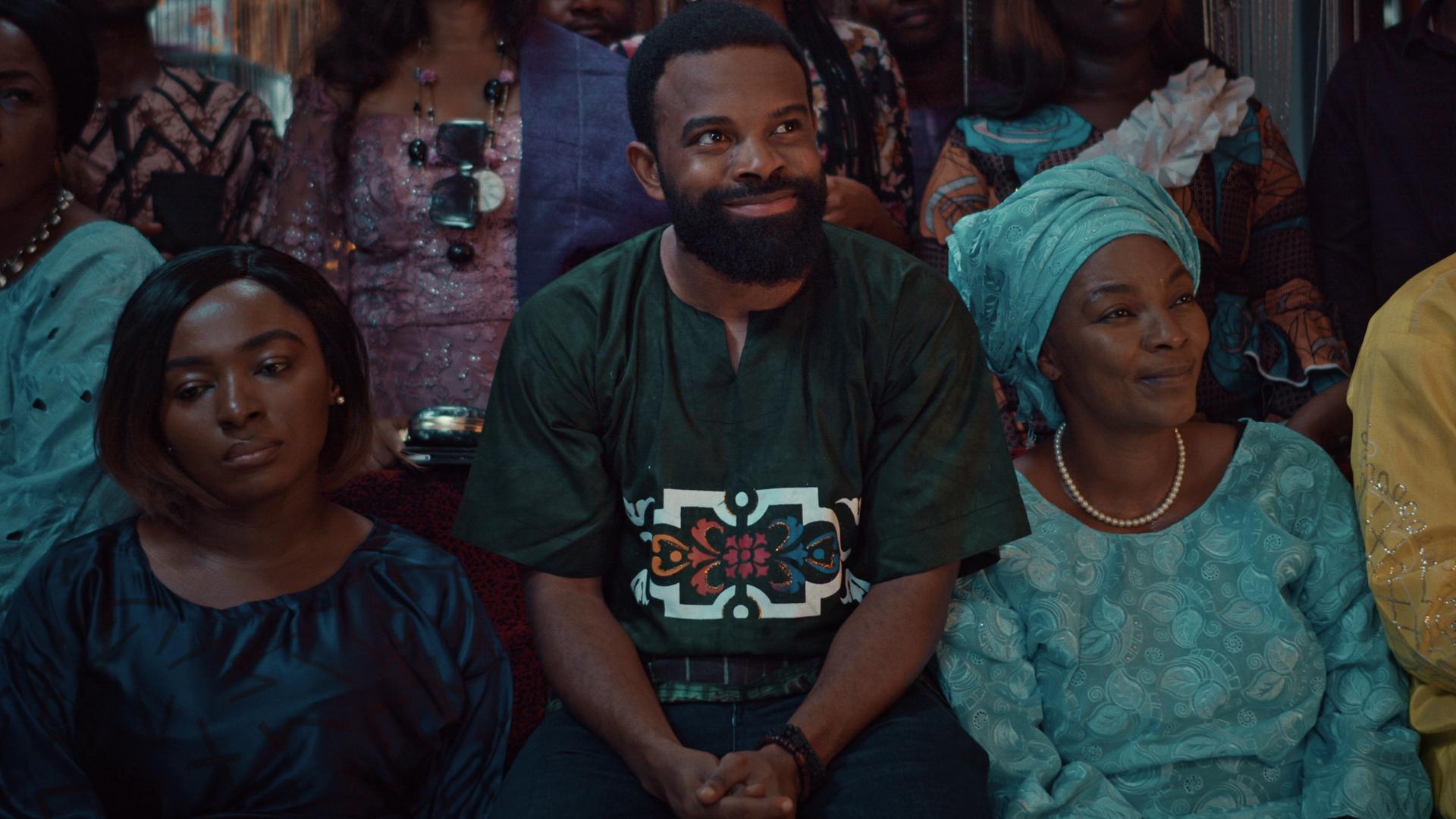 ‘For Maria Ebun Pataki’ Review: An Exciting Debut from Damilola Orimogunje
‘For Maria Ebun Pataki’ Review: An Exciting Debut from Damilola Orimogunje
5. Any upcoming works/projects that you can share with us which we should look forward to?
Yes, I do have a few upcoming projects in the works with film producers here in America. I can’t say much about them because that would mean stepping on the toes of said producers *laughs* One is a biographical drama, which I love. One is a thriller, which I find cool. And the last one is a personal project of mine that’s basically an extension of something I did with the BBC a few years ago. I’m finally working on writing it for the screen and making it bigger. Fingers crossed.
6. What’s currently keeping you up? Any movies, TV shows, podcasts, or books recommendations?
Well at the moment, I’m watching The Resident. It’s a medical drama on Hulu. If you know me, you know how much I love medical dramas. If you want to get on my bad side, say one bad thing about Grey’s Anatomy. *laughs*
I love John Grisham’s “A Time For Mercy”, just because I think it’s a cool legal thriller.
And I’m currently reading “A Higher Loyalty” by James Comey. The Comey Rule is a series on Netflix that’s an adaptation of the book. I saw the series, found it interesting and enlightening, so I decided to read the book – “A Higher Loyalty”. The relationship between James Comey and Donald Trump and all the politics that happened at the White House is very interesting to read. That’s what’s currently keeping me up.
Thank you for having me and thank you for your support. I appreciate all of it.
Keep up with Tunray Femi on Twitter to stay abreast of exciting news on her upcoming projects: a biographical drama, a thriller, and a personal project.
Share your thoughts in the comments section or on our social media accounts.
For Maria Ebun Pataki is currently streaming on Netflix.

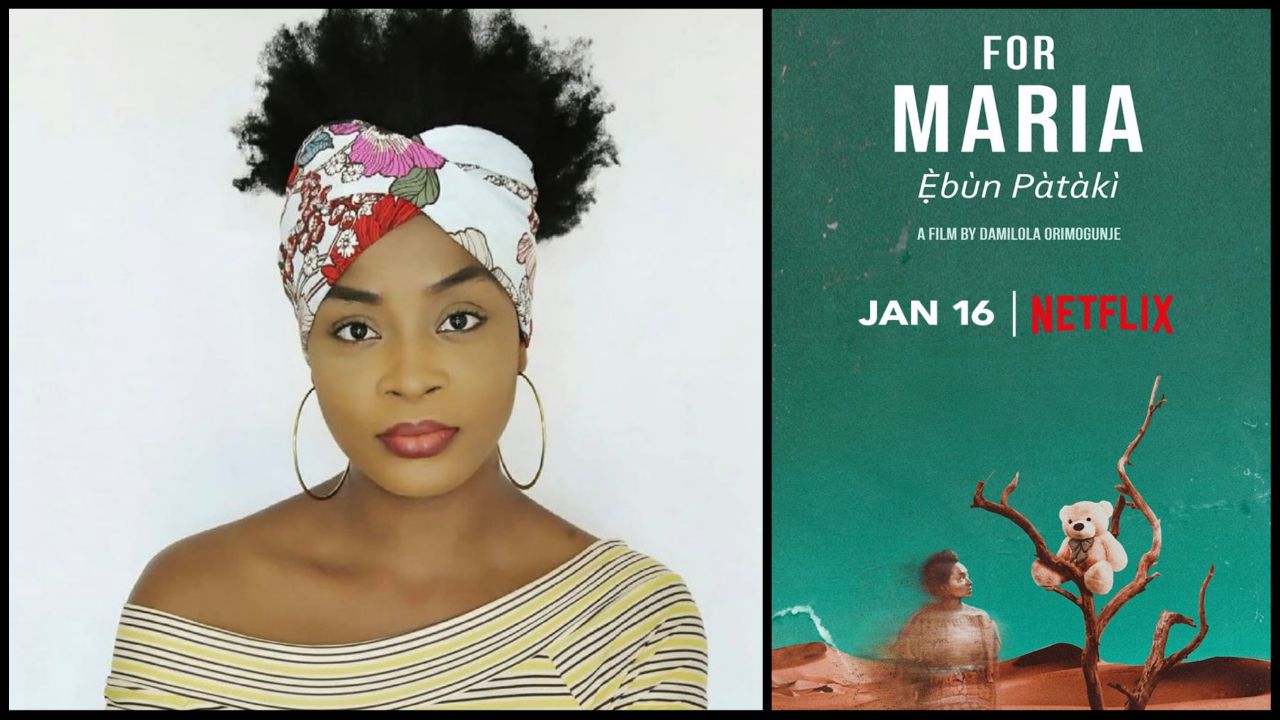
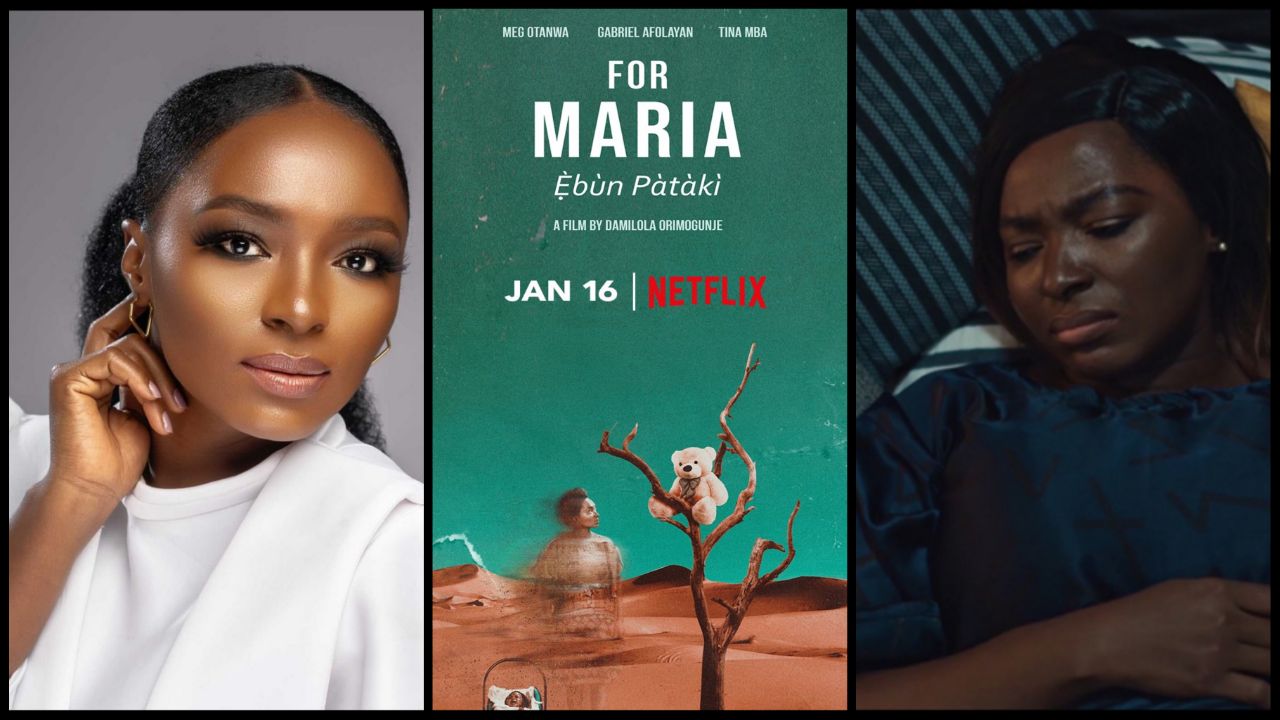
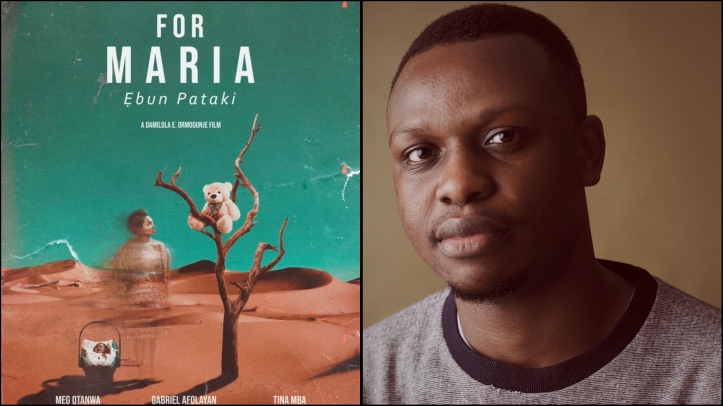
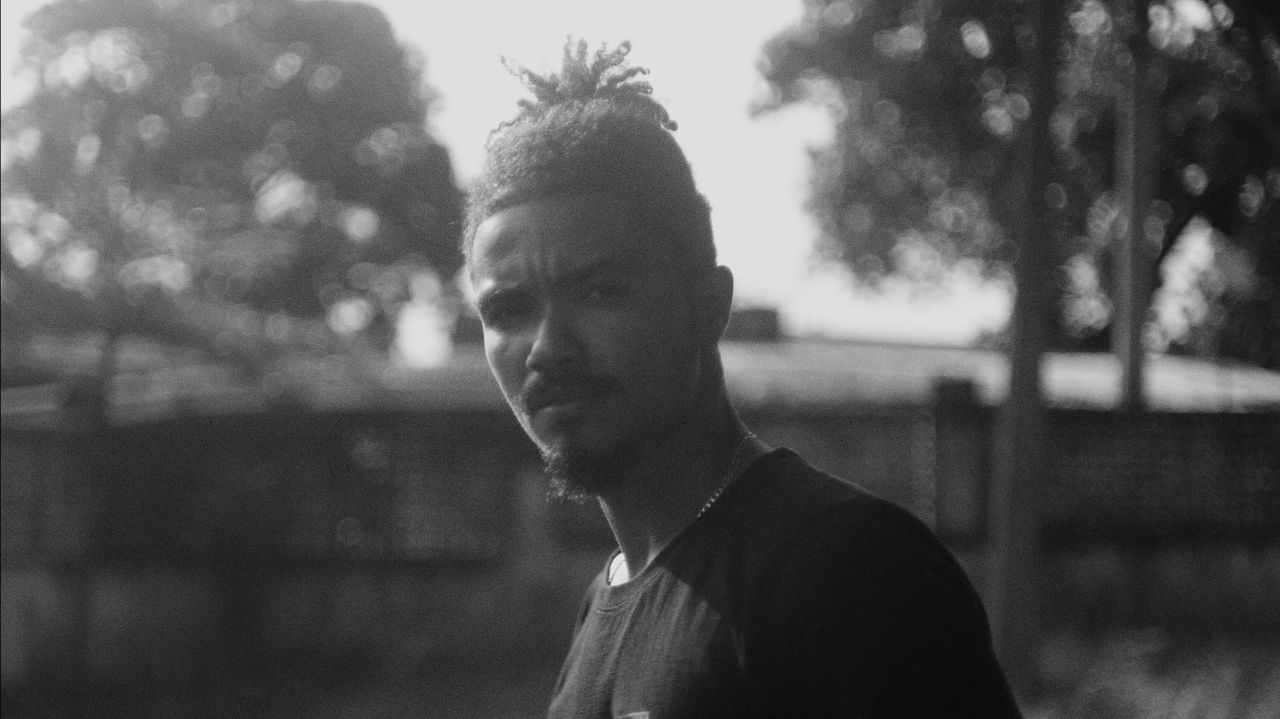

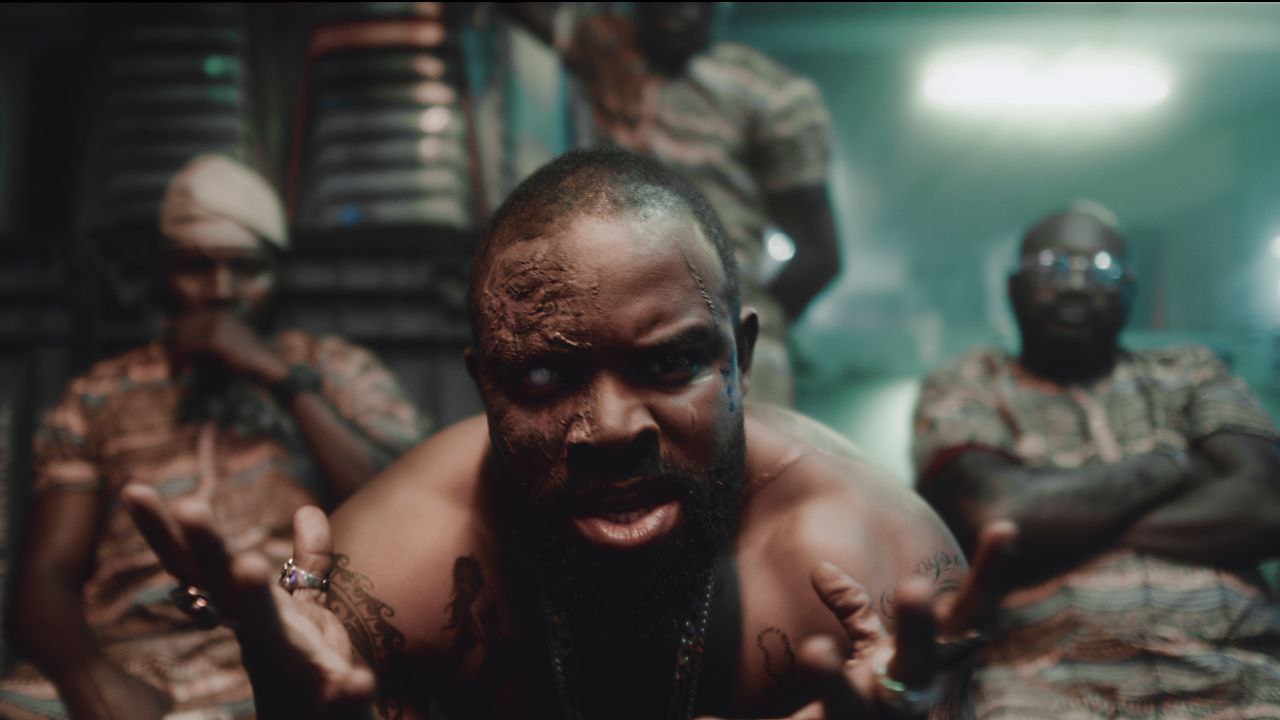

1 Comment